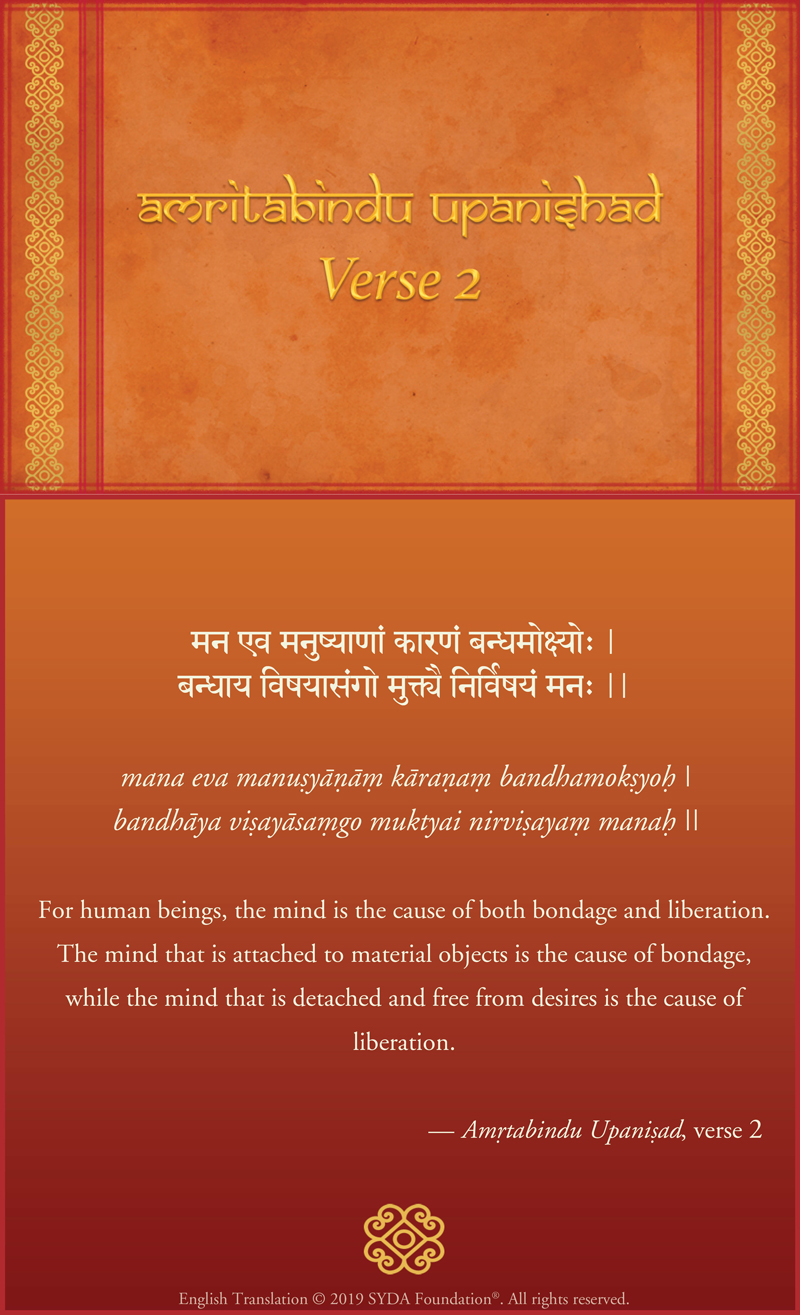Amritabindu Upanishad Verse 2
This verse from the Amrtabindu Upanishad relates to the teachings in Gurumayi’s Message talk for 2019 regarding the immeasurable power of the human mind. Over the centuries the ancient Indian scriptures have proclaimed time and again that what you think is what you become. When our thoughts are optimistic, when we choose to focus on virtues such as joy, courage, and contentment, then our experience of the world also overflows with those qualities.
In this verse, the Sanskrit word kāraṇa means “to be the cause” or “the place of origin.” The mind is the origin of happiness as well as unhappiness in our lives. It is the cause of bondage, bandhana, and also the root of liberation, mokṣa.
This verse further explains what brings about bondage or liberation for the mind. It is that on which the mind dwells.
In this verse, the word nirviṣaya signifies a state of mind that is not entwined in the material world, is unfettered by desires and fears—is free even while you are still living in this world.
On the Siddha Yoga path, the concept of detachment doesn’t mean letting go of your responsibilities in life or becoming uncaring and cold. It means, rather, to continue living in this world—performing your duty and, at the same time, ensuring that the mind remains centered in the Self, the source of all knowledge, love, and joy within us. When we perform all our actions with the recognition that the source of all the joy and love we are seeking on the outside is truly within, then we naturally find ourselves in the company of sweet detachment and deep solace.
One of the fundamental ways to experience this peaceful detachment is by developing a strong and regular relationship with the timeless spiritual practices such as meditation, study of the Guru’s teachings, and repetition of the mantra. These spiritual practices keep the mind anchored in its source, the supreme Self within.



